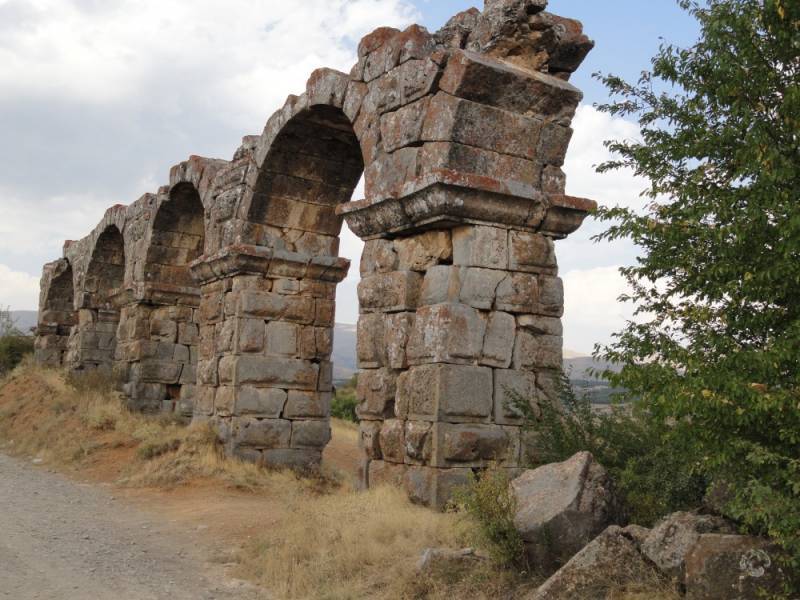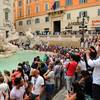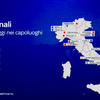Rome on the Eve of a Jubilee
ROME – Just six months before the Extraordinary Jubilee called by Pope Francis to begin Dec. 8, the Eternal City is at sixes and sevens, plagued by accusations of infiltrations by organized crime. The scandal here is being called “Mafia Capitale,” a sorry play on words for “Roma Capitale” (Rome the Capital).
In the election of 2013 Mayor Ignazio Marino copped over two-thirds of the vote (64%), and today heads a city administration backed by the Partito Democratico (PD) and the Sinistra Ecologia Liberta’ party (SEL).
Most of the scandals predate his election, and this respected doctor-turned-politician is recognized as personally above reproach; within his first year in office Marino turned over to prosecutors what he was learning on the job about kickbacks and corrupt aides and city employees. Fairly or not, Mayor Marino is nevertheless taking the brunt as demands pour in for new elections or appointment of a commissioner to replace him. Even Premier Matteo Renzi, head of the PD, has made broad hints that Marino should resign. For the moment, Marino refuses.
The avalanche of investigations involves at least 100 people and had already sent literally dozens of city officials, shady businessmen who underwrote buddies’ elections, and even gangland associates to jail. Top manager of the dirty tricks was a former neo-Fascist tough named Massimo Carminati, who allegedly provided the link between the upper level (the crooked politicians and bureaucrats within the city administration) and – according to prosecutors – organized crime, in particular the powerful ‘Ndrangheta, The reach of this organization, whose name seems to derive from andragathía, a Greek word whose meaning incorporates defiance, courage and valiance, extends from Calabria to the U.S., Mexico and Australia – and to Rome, where it allegedly funded some political election campaigns.
For at least 18 months police successfully spied upon the now imprisoned Carminati and his associates, managing to obtain an extraordinarily vast trove of wire taps. Leaked to the press, they make devastating reading. “Truth to tell, I’m rich,” Carminati was overheard telling the boss of the cooperative movement in Rome, Salvatore Buzzi, 59 (himself now under investigation as Carminati’s successor). “I’m a rich bandit but it’s hard to bring out my money because they [the police] might just take it.” Carminati elected to rent, rather than purchase, his home in the Roman suburb of Sacrofano, he said, because a large payment for a house risked attracting officials’ attention to the gap between his tax declarations and the amount needed to pay the sort of house he wanted. (See >>>)
Nadia Cerrito, Buzzi’s 49-year-old secretary, is reported as having been among the first to cooperate with magistrates, admitting that she kept the illicit books and that, “I made the payments, I prepared the kickbacks and put them into paper envelopes… At most, 15,000 Euros” ($17,000). “For years the clan of Massimo Carminati has been doing business with the ‘Ndrangheta clan of the Mancuso of Limbadi,” reads a judicial record. Together Buzzi and Carminati created the Santo Stefano coop which was assigned the cleanup contract for Rome’s biggest outdoor market, the Esquilino. Afterward rubbish collecting jobs were given to cronies, say magistrates. “The two [Carminati and Buzzi] also had weapons available to them.”
The ongoing investigation is headed by Rome prosecutor Giuseppe Pignatone, who spent two hours on June 17 testifying before the parliamentary commission on immigration, whose brief includes administration of refugee aid. One of the saddest revelations has been the evidence of huge kickbacks stolen from the coops supposed to fund housing and food for destitute migrants. “Do you have an idea of how much you can earn from immigrants?” Carminati was overheard saying last December. “The drug traffic pays less.”
The politicians allegedly involved are from political parties across the board, including Renzi’s and Marino’s PD. Under investigation is former Rome Mayor Gianni Alemanno, a one-time neo-Fascist who moved into Alleanza Nazionale, the party now in coalition on the national level with Premier Matteo Renzi. The charges against Alemanno, which involve Carminati, are extremely serious, for they include Mafia association.
“The ‘Mafia Capitale’ organization made a huge advance in the administration between 2011 and 2012, at the time of the North African emergency,” Commission President Gennaro Migliore of the PD said at the end of the parliamentary session where Pignatone testified. “Around the word ‘emergency’ a rather wide-ranging mafia system was developed.”
Presumably as a result of the systematic corruption in Rome, administration of the city has degenerated, with road repair, rubbish collection and building maintenance neglected. Still, some here believe that the obvious decline in the city is not solely the fault of corrupt officialdom. For the distinguished commentator Corrado Augias, writing in the daily La Repubblica June 20, “The city’s poor administration is reflected in the lazy habits of most of its inhabitants… No other city in Europe has roads that are all and always full of potholes, with sidewalks borders broken or even overturned. Manholes are stopped up, weeds grow among the venerable ancient stones, bins regurgitate rubbish, no one waters newly planted trees so that they dry up and die, and monuments are left untended.”
The news is not all bad, however. On the ancient Appian Way restoration has begun on the nine supports and eight arches of the 120-arched Aqueduct of the Quintili, at a cost of around $500,000. The arches were at risk of collapse. The aqueduct brought water into the huge villa of the Quintili, now part of a regional park and open daily to the public from 9 to 5.







































i-Italy
Facebook
Google+
This work may not be reproduced, in whole or in part, without prior written permission.
Questo lavoro non può essere riprodotto, in tutto o in parte, senza permesso scritto.